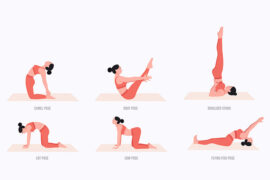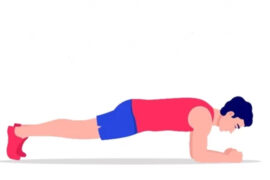Walking is a simple and accessible form of exercise that offers numerous health benefits. It improves cardiovascular health by strengthening the heart and boosting circulation, aids in weight management by burning calories, and enhances muscle tone and endurance. Walking also supports mental well-being by reducing stress, anxiety, and depression. It’s a low-impact activity, making it gentle on the joints and suitable for people of all fitness levels. Regular walking can improve overall mobility, increase energy levels, and contribute to better sleep. Incorporating one-hour walk into your daily routine can be a practical and effective way to enhance physical and mental health.
A one-hour walk is an excellent way to boost physical and mental health. It can burn approximately 200-300 calories, depending on your pace and body weight, and helps improve cardiovascular fitness by enhancing heart and lung function. Regular one-hour walks can also strengthen muscles, improve bone density, and increase flexibility and endurance.
The number of kilometers and calories burned during a one-hour walk can vary based on several factors, including walking speed, body weight, and terrain. Here’s a general overview:
1. Kilometers Covered:
- Slow Pace (4 km/h or 2.5 mph): Approximately 4 kilometers (2.5 miles) per hour.
- Moderate Pace (5-6 km/h or 3-4 mph): About 5 to 6 kilometers (3 to 4 miles) per hour.
- Brisk Pace (7-8 km/h or 4.5-5 mph): Around 7 to 8 kilometers (4.5 to 5 miles) per hour.
2. Steps Taken:
- Slow Pace: Approximately 5,000 to 6,000 steps per hour.
- Moderate Pace: About 6,000 to 7,500 steps per hour.
- Brisk Pace: Around 7,500 to 10,000 steps per hour.
3. Calories Burned:
For a 70 kg (154 lbs) Person:
- Slow Pace (4 km/h or 2.5 mph): 200-250 calories per hour.
- Moderate Pace (5-6 km/h or 3-4 mph): 250-300 calories per hour.
- Brisk Pace (7-8 km/h or 4.5-5 mph): 300-400 calories per hour.
For a 90 kg (198 lbs) Person:
- Slow Pace (4 km/h or 2.5 mph): 250-300 calories per hour.
- Moderate Pace (5-6 km/h or 3-4 mph): 300-350 calories per hour.
- Brisk Pace (7-8 km/h or 4.5-5 mph): 350-450 calories per hour.
Factors Affecting Measurements:
- Walking Speed: Faster speeds cover more distance, result in more steps, and burn more calories.
- Body Weight: Heavier individuals burn more calories and take more steps.
- Terrain: Inclines and uneven surfaces increase calories burned and may affect step count.
- Intensity: Higher intensity or intervals can increase calorie burn and step count.
Using a pedometer or fitness tracker can provide more accurate measurements tailored to individual walking patterns and physical characteristics.
Disclaimer:
The information contained in this article is for educational and informational purposes only and is not intended as a health advice. We would ask you to consult a qualified professional or medical expert to gain additional knowledge before you choose to consume any product or perform any exercise.







